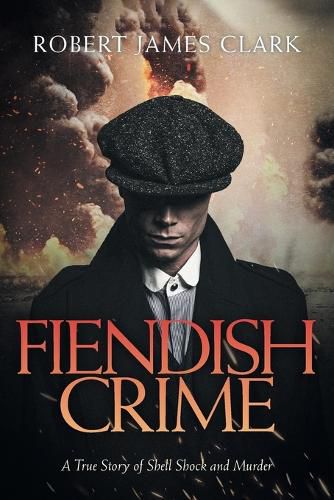Readings Newsletter
Become a Readings Member to make your shopping experience even easier.
Sign in or sign up for free!
You’re not far away from qualifying for FREE standard shipping within Australia
You’ve qualified for FREE standard shipping within Australia
The cart is loading…






This title is printed to order. This book may have been self-published. If so, we cannot guarantee the quality of the content. In the main most books will have gone through the editing process however some may not. We therefore suggest that you be aware of this before ordering this book. If in doubt check either the author or publisher’s details as we are unable to accept any returns unless they are faulty. Please contact us if you have any questions.
In 1928, the bodies of two young boys were found in the Indiana Harbor shipping canal of East Chicago, their identities unknown. With no missing children of their age and appearance reported in the city, the police had begun to lose hope until a breakthrough led them to the murderer: their father, George Chisholm, a Canadian World War I veteran.
How could a parent commit such a crime? The case drew headlines around the country and worldwide. The death penalty loomed for Chisholm, and his attorneys planned a campaign to save him from the electric chair on the grounds of mental illness. During World War I, while serving in the Victoria Rifles of Canada for three years, Chisholm endured the horrors of trench warfare and the Battle of Vimy Ridge. After being gassed and shell-shocked on the battlefield, Chisholm returned to Canada a changed man and his mental health deteriorated. Although the war had produced epidemic levels of shell shock, it had often been viewed as "cowardice" or "nervousness," rather than debilitating psychological trauma. And yet, its effects persisted long afterward, manifested in shocking cases like Chisholm's.
Set near Chicago during the roaring twenties-the era of Capone and Lindbergh, bootlegging, gangsters, and rapid social change-Fiendish Crime explores not only George Chisholm's case, but also the legacy of tragedy that continues long after war.
$9.00 standard shipping within Australia
FREE standard shipping within Australia for orders over $100.00
Express & International shipping calculated at checkout
This title is printed to order. This book may have been self-published. If so, we cannot guarantee the quality of the content. In the main most books will have gone through the editing process however some may not. We therefore suggest that you be aware of this before ordering this book. If in doubt check either the author or publisher’s details as we are unable to accept any returns unless they are faulty. Please contact us if you have any questions.
In 1928, the bodies of two young boys were found in the Indiana Harbor shipping canal of East Chicago, their identities unknown. With no missing children of their age and appearance reported in the city, the police had begun to lose hope until a breakthrough led them to the murderer: their father, George Chisholm, a Canadian World War I veteran.
How could a parent commit such a crime? The case drew headlines around the country and worldwide. The death penalty loomed for Chisholm, and his attorneys planned a campaign to save him from the electric chair on the grounds of mental illness. During World War I, while serving in the Victoria Rifles of Canada for three years, Chisholm endured the horrors of trench warfare and the Battle of Vimy Ridge. After being gassed and shell-shocked on the battlefield, Chisholm returned to Canada a changed man and his mental health deteriorated. Although the war had produced epidemic levels of shell shock, it had often been viewed as "cowardice" or "nervousness," rather than debilitating psychological trauma. And yet, its effects persisted long afterward, manifested in shocking cases like Chisholm's.
Set near Chicago during the roaring twenties-the era of Capone and Lindbergh, bootlegging, gangsters, and rapid social change-Fiendish Crime explores not only George Chisholm's case, but also the legacy of tragedy that continues long after war.